Apr 2023

Your brilliant app idea deserves the perfect development approach. Should you build it native, hybrid, or cross-platform? This critical decision affects everything from performance and user experience to development costs and time-to-market.
The mobile app ecosystem continues to evolve rapidly in 2025. Beyond simply capturing attention, today’s successful apps must deliver exceptional experiences that integrate seamlessly with users’ digital lives while meeting increasingly sophisticated expectations.
Each development path offers distinct strategic advantages:
The right choice depends on your specific project needs, target audience, technical requirements, budget constraints, and timeline goals. This comprehensive guide will walk you through the key differences, helping you make the strategic decision that aligns with your business objectives in today’s complex mobile landscape.
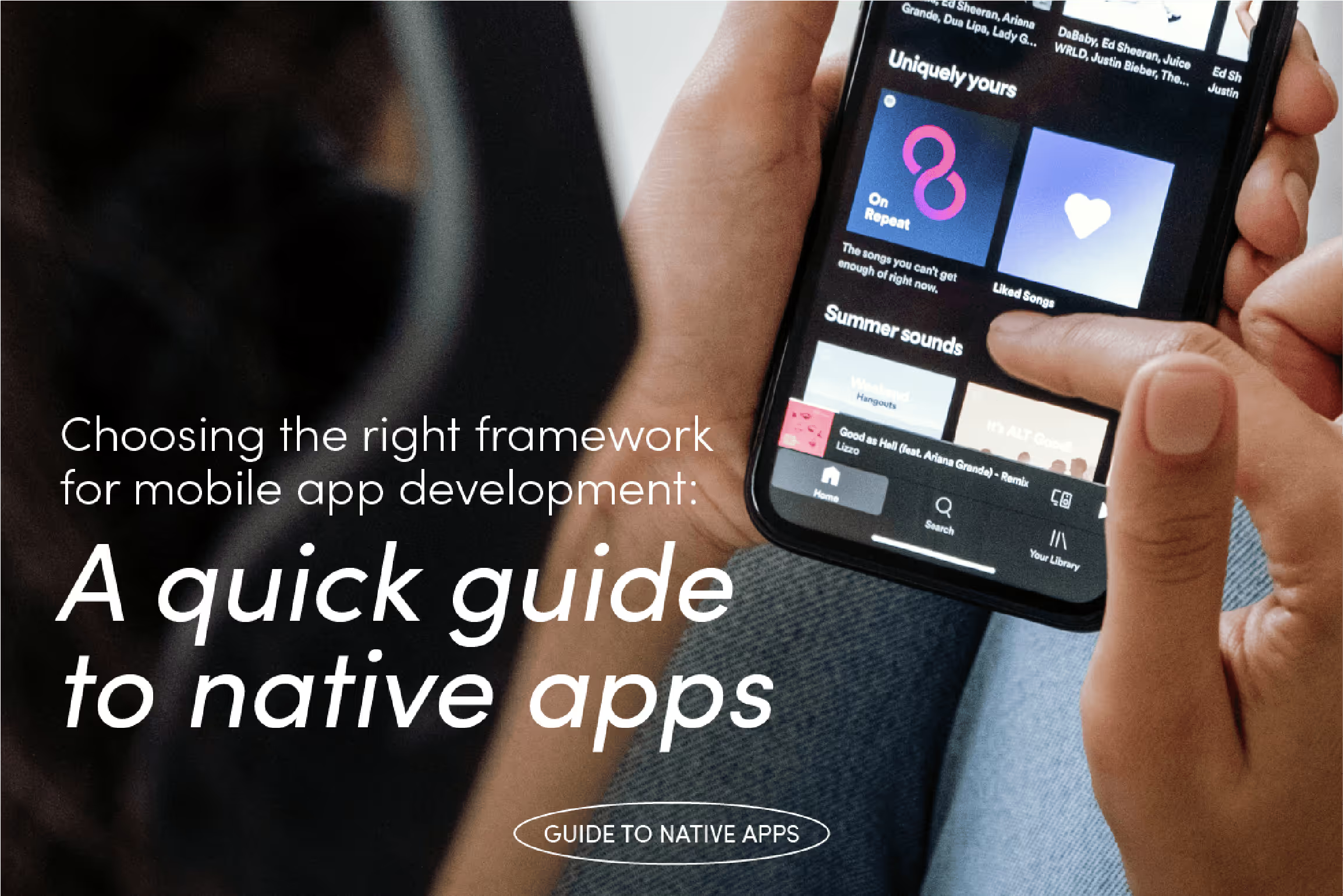
A native mobile app is developed for a particular mobile platform using the platform’s native programming language. Because they are optimized for the device’s specific mobile operating system, hardware, and software features, native apps offer stellar performance and a smooth user experience. They are also known for their ability to integrate with the mobile device’s hardware features, such as the camera, GPS, and sensors.
Native development solutions offer superior design, performance, security, and compliance. You should consider using native development to build complex apps or for applications that require heavy data processing. Due to the platform’s core development language and APIs, native apps possess superior performance and intuitive UX.
InspiringApps developers have extensive experience in native app development using Kotlin for Android and Swift for iOS app development.
Let’s discuss the pros and cons of native mobile app development.
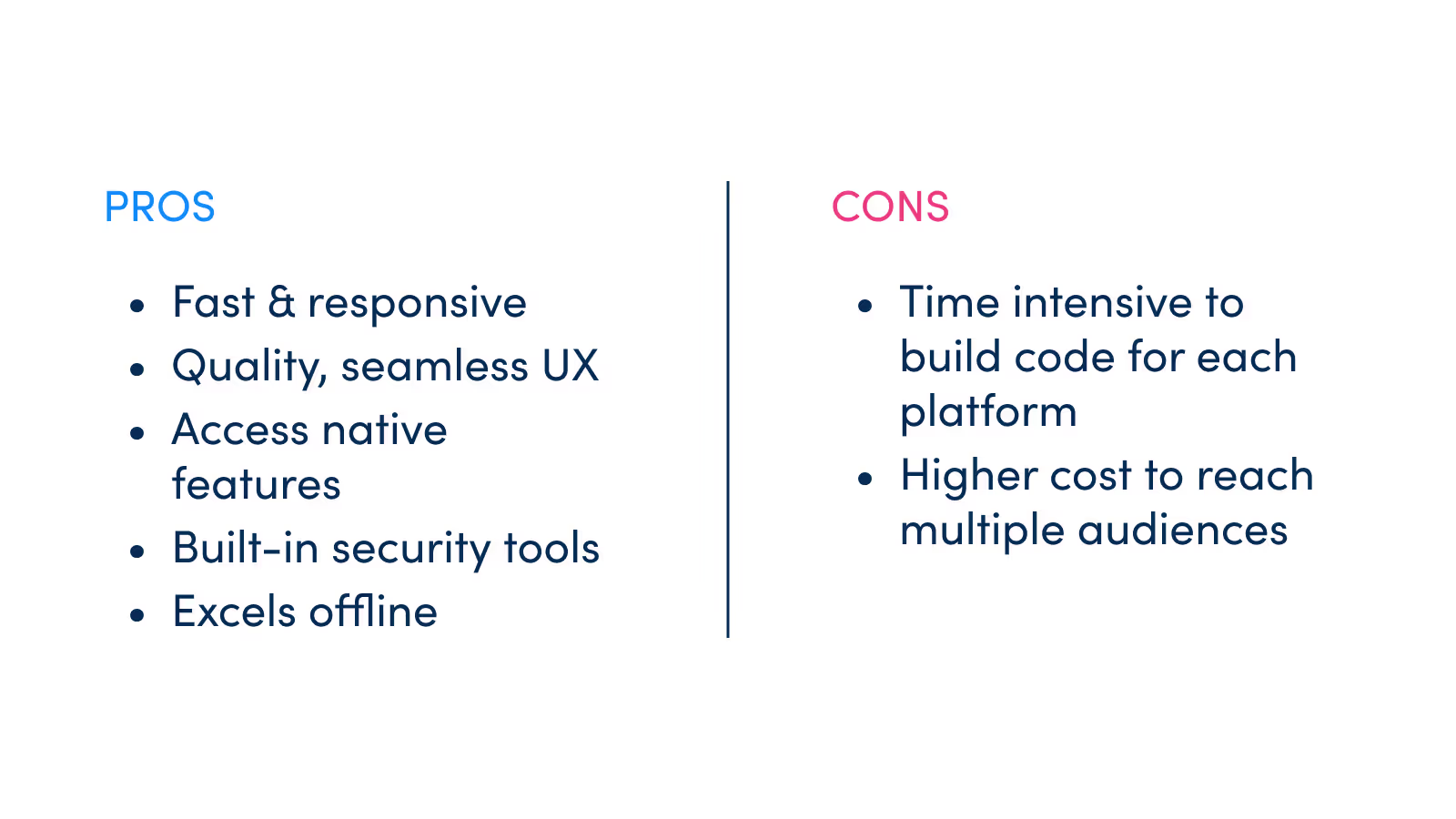
Choose native development when:
Popular apps that benefit from native development include:
Modern native iOS development primarily utilizes Swift, a powerful and intuitive language, along with SwiftUI for building declarative user interfaces. Objective-C remains relevant mainly for maintaining legacy codebases.
Key development tools and SDKs provided by Apple include:
Kotlin is the primary and officially preferred language for modern native Android development, used for the bulk of application logic and UI, especially with Android Jetpack Compose, Google’s modern declarative UI toolkit. Java is now typically used for legacy projects or specific interoperability needs. C++ plays a crucial role with the Android NDK (Native Development Kit) for performance-critical tasks, game development, and reusing existing native libraries. Scala is very niche for Android.
Key development tools and platforms from Google include:
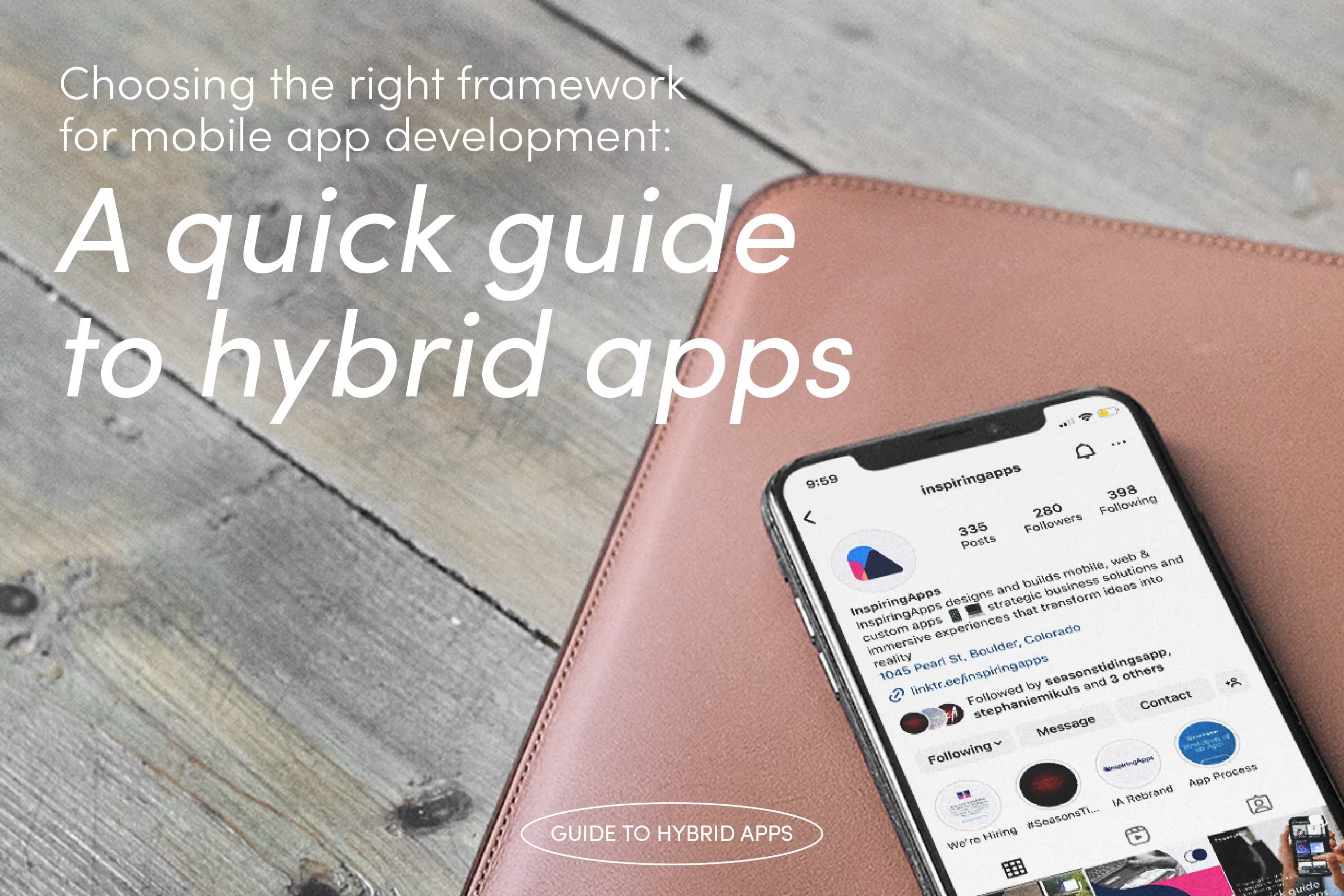
Hybrid development means building your app with standard web technologies (like HTML, CSS, and JavaScript) and then placing it inside a native “shell” so it can run on different devices. This lets you use one main set of code for multiple platforms, like iOS and Android. While this approach is fast and efficient, apps run inside a web browser component. In the past, this sometimes meant they weren’t as fast as native apps or didn’t always perfectly match the look and feel of each platform. However, modern tools and faster devices have made these issues much less common.
Consider hybrid development if getting your app to market quickly on multiple platforms is a priority, and you want to tap into web development skills, which can also be more cost-effective. Modern hybrid apps can effectively store data locally and use caching, allowing users to access features and content even without an internet connection. Keep in mind that, like all apps, hybrid apps need to meet current app store rules, such as targeting up-to-date Android versions.
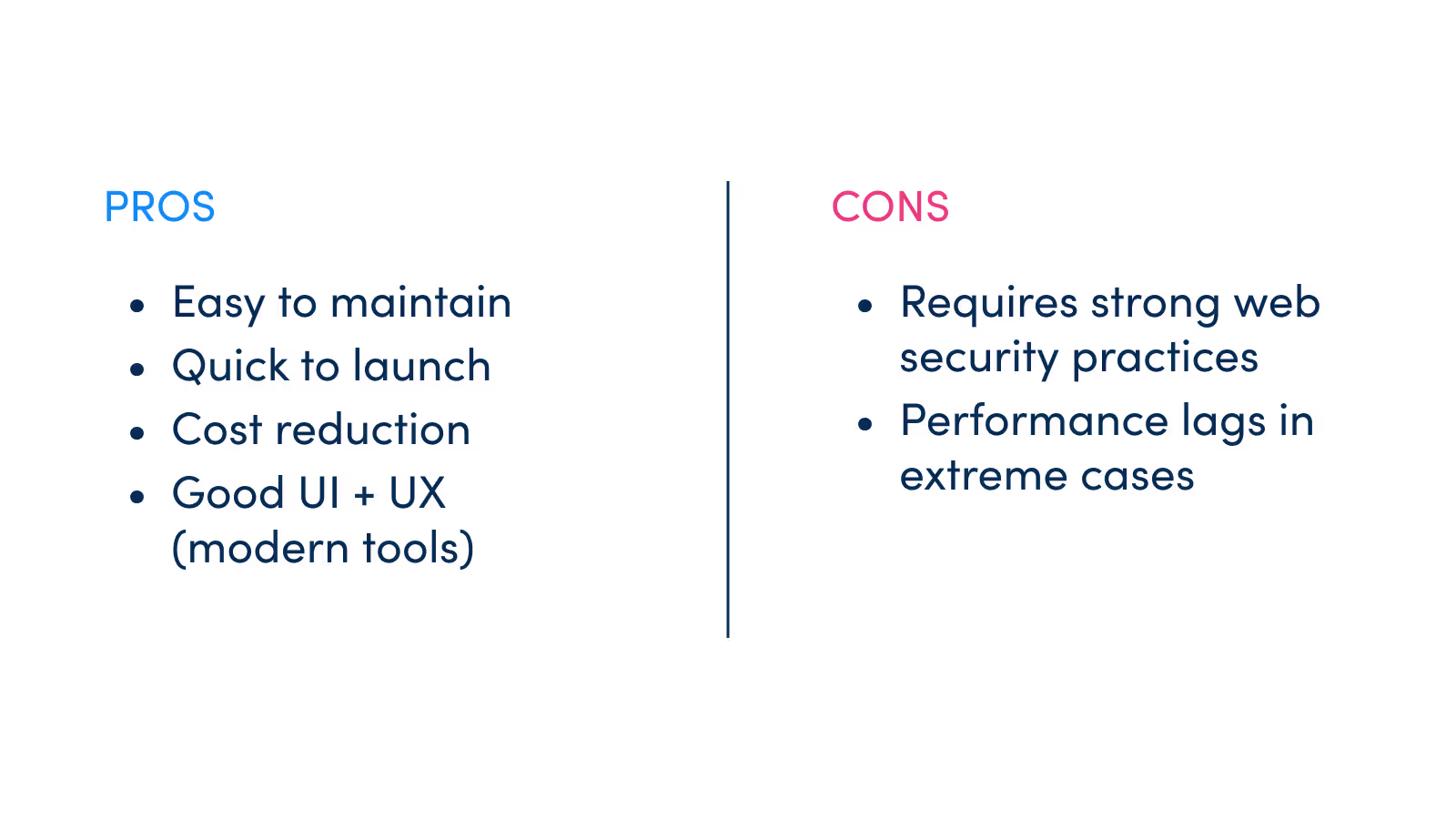
Consider hybrid for:
Apps using hybrid approaches:
These frameworks help package web code (HTML, CSS, JavaScript) into mobile apps. Modern solutions often use a bridge like Capacitor to access phone features.
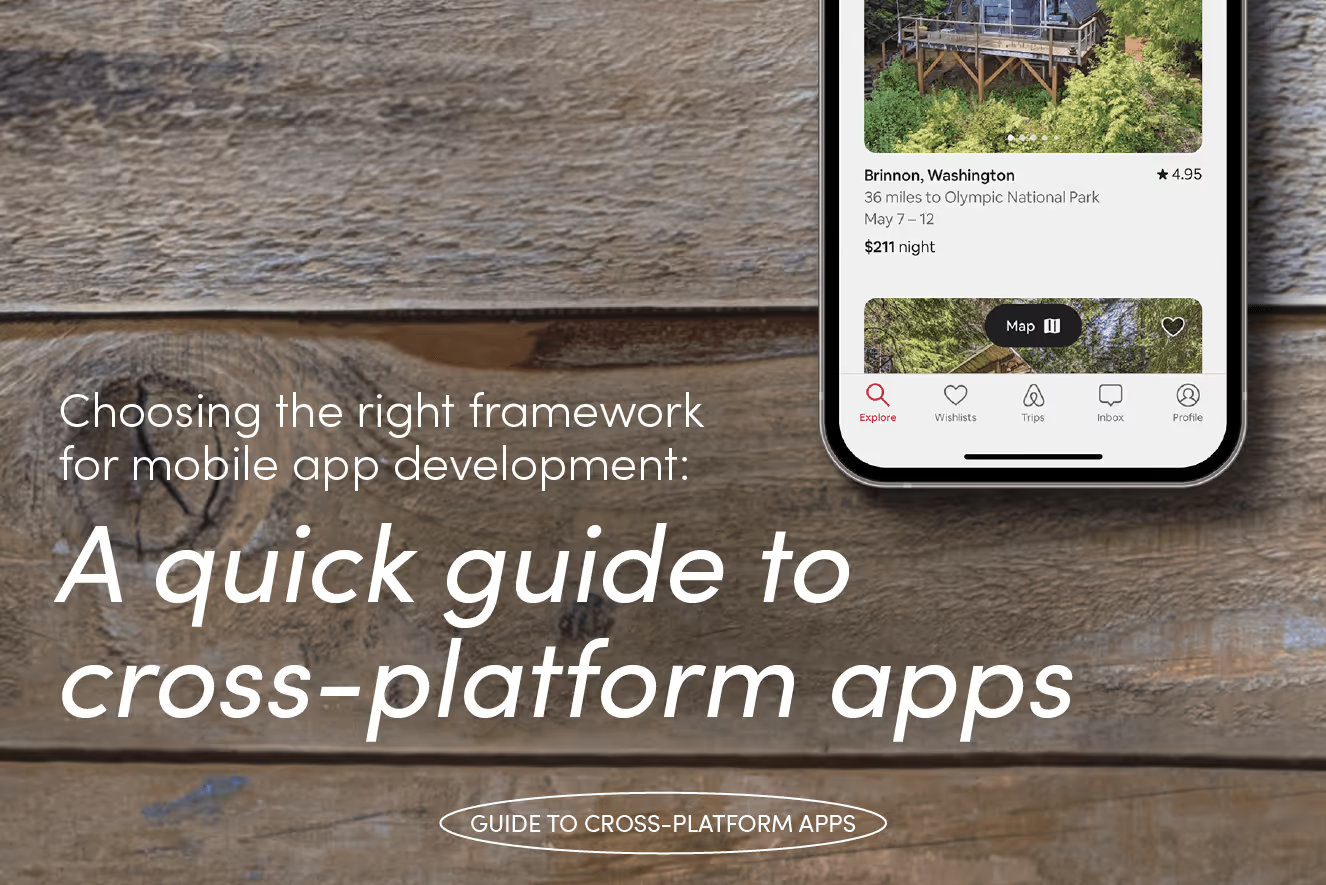
Cross-platform app development allows businesses to build applications for multiple operating systems (primarily iOS and Android) using a single, unified codebase. Frameworks like Flutter and React Native are leading examples of this approach. Instead of writing separate apps for each platform, developers can create one app that works on different devices.
A key advantage is that modern cross-platform tools enable the creation of high-quality user experiences that can look, feel, and perform very similarly to native applications. These frameworks are capable of building complex UIs and smooth animations. Furthermore, they provide robust solutions for offline functionality, allowing apps to store data locally and remain useful even without an internet connection.
Consider a cross-platform approach when you want to reach users on multiple platforms efficiently with a single codebase. While older perceptions suggested compromises, today’s leading frameworks can deliver fast, reliable, and engaging applications suitable for a wide range of projects.
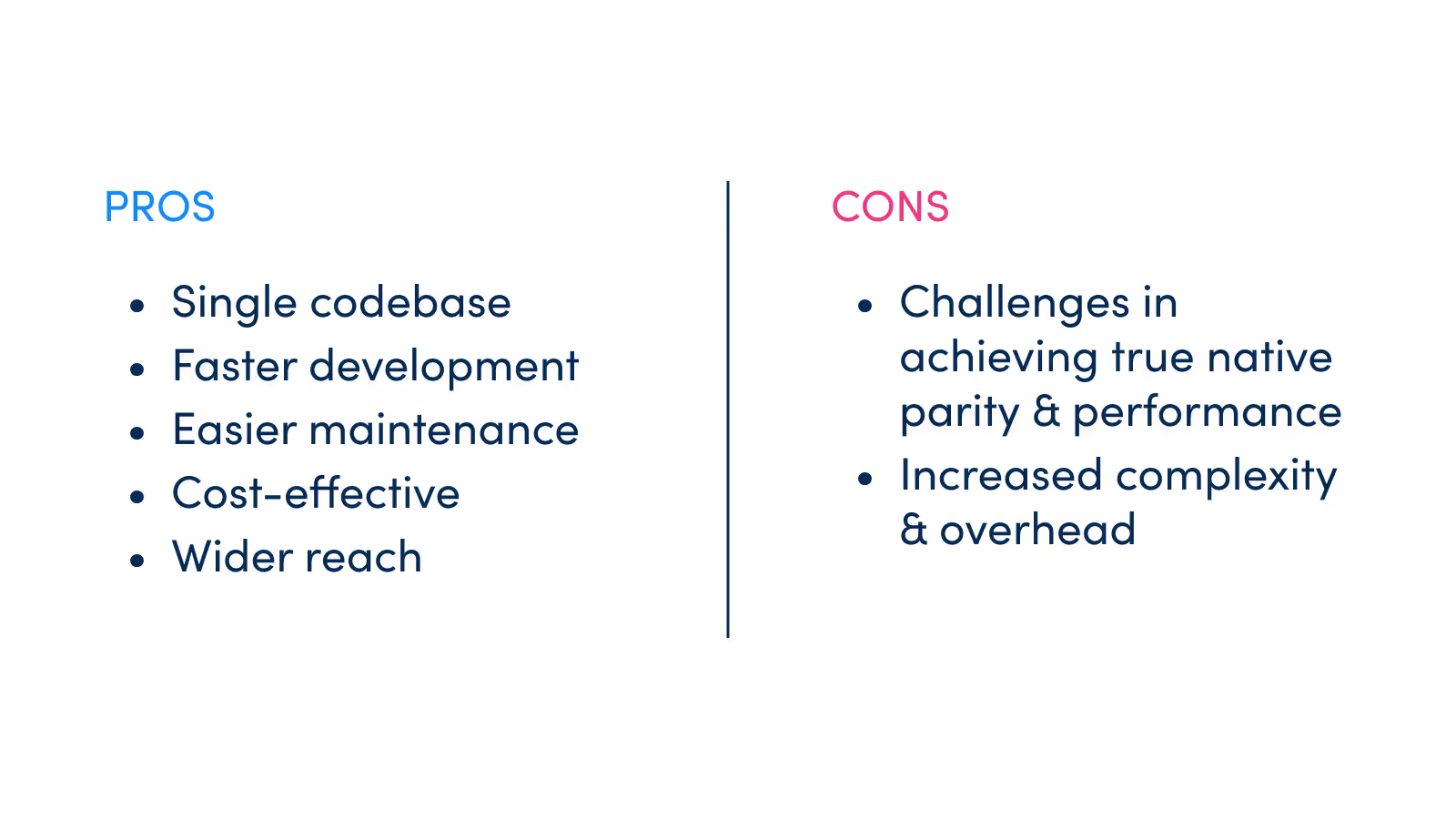
Ideal for:
Major apps built with cross-platform frameworks:
These popular tools enable developers to use a single main codebase to build applications for multiple mobile platforms, primarily iOS and Android.
Developing a native application requires teams of developers with specialized skills for each platform. This can be time-consuming and expensive. When you have a tight timeline, cross-platform and hybrid apps are the way to go. Native development tends to be a more lengthy process due to having to create different versions of the app and a separate codebase for each platform.
Your business priorities, budget, and project scope will significantly influence which developmental route to take. If your company has a limited budget, hybrid and cross-platform approaches will best suit your needs; a single codebase saves you money by allowing you to reuse code for future use.
All apps need good security. Native apps have direct access to the phone’s built-in security tools provided by Apple or Google. This can be a strong choice if your app handles very sensitive information. Careful development can also make other types of apps very secure.
If your app needs to be incredibly fast for things like complex 3D games or intense calculations, native development is often the top choice. However, modern cross-platform and hybrid tools also perform very well for many other types of apps that still need to feel quick and responsive.
For complex mobile applications and deeply customized UX that align perfectly with platform-specific guidelines, native development provides the most direct control and often results in very smooth performance and a highly refined user experience. It also allows immediate adoption of the latest OS design paradigms.
Access to standard device-specific features like the camera or GPS is well-supported across native, hybrid, and modern cross-platform frameworks. Native development ensures immediate access to the very newest or most niche OS-level hardware controls as soon as the platform vendor releases them.
Considering the app’s lifecycle beyond launch, each approach presents different considerations for ongoing maintenance and future scalability:
A thoughtful, modular architecture is crucial for long-term maintainability, irrespective of the initial development path. For example, strategically isolating third-party services—even by containing them within a web view in a native app—allows for updates to these services with minimal disruption to the core application.
So, which path is truly best for your mobile app: native, hybrid, or cross-platform? As this guide has detailed, the answer isn’t universal but hinges on strategic alignment with your unique project goals, resources, and priorities.
Native development excels for performance-critical and deeply integrated experiences; traditional hybrid approaches offer speed and cost-efficiency for content-focused apps or leveraging web tech; and modern cross-platform solutions provide a compelling balance for reaching a broad audience with a near-native feel from a single codebase.
Ultimately, making the “best” choice requires a careful evaluation of the critical factors outlined in our “Selecting Your Approach” section above. Consider your app’s complexity, performance demands, budget, desired speed to market, native integration needs, and your team’s long-term maintenance strategy. When chosen wisely, each development path can lead to a successful, high-quality mobile application that supports your business objectives and delivers a compelling user experience.
Native, hybrid, and cross-platform mobile apps differ in UX, UI, development speed, code base, app development costs, time to market, and other factors. Native programming languages cannot be streamlined across platforms, while hybrid and cross-platform can.
Native app development refers to the process of building apps specifically for a single platform, such as iOS or Android. This mobile app development approach involves using the core programming languages and tools that are specific to that platform, such as Swift or Objective-C for iOS and Java or Kotlin for Android.
Hybrid app development, on the other hand, involves building apps that can run on multiple platforms using a single code base. This is typically done using web technologies such as HTML, CSS, and JavaScript, which are then packaged into a native app wrapper that can be deployed on various platforms.
Cross-platform app development is similar to hybrid app development in that it involves building apps that can run on multiple platforms using a single code base. However, cross-platform development uses frameworks (like Flutter, React Native, or .NET MAUI) with their own languages (e.g., Dart, JavaScript, C#) that are designed to create applications that compile to native code, render native UI components, or use high-performance rendering engines. This generally results in better performance and a more native-like user experience compared to traditional hybrid apps.
There's no single “best” method; the ideal choice hinges on your project's unique goals and constraints. Native excels for peak performance and deep OS integration, hybrid offers speed for simpler content-driven apps, and modern cross-platform solutions balance efficiency with a near-native feel. To determine the best fit for your specific project, we recommend thoroughly evaluating the key factors, such as desired user experience, development time and cost, performance needs, and long-term maintenance. For a deeper dive into how Kotlin Multiplatform can strategically share business logic while preserving native UIs, see our detailed guide: Kotlin, KMP, & Compose: A Simple Guide to Modern App Development Choices.
Innovative functionality and design are within reach. Whether it is a complex data solution, a custom integration, an internal app for employees, or an app that will deliver messages to the Moon, InspiringApps provides intelligent digital products that delight clients and end users with transformative results.
Let’s move your business forward together. Speak with our experts in enterprise solutions.
Have an idea? We help clients bring ideas to life through custom apps for phones, tablets, wearables, and other smart devices.
Work with us